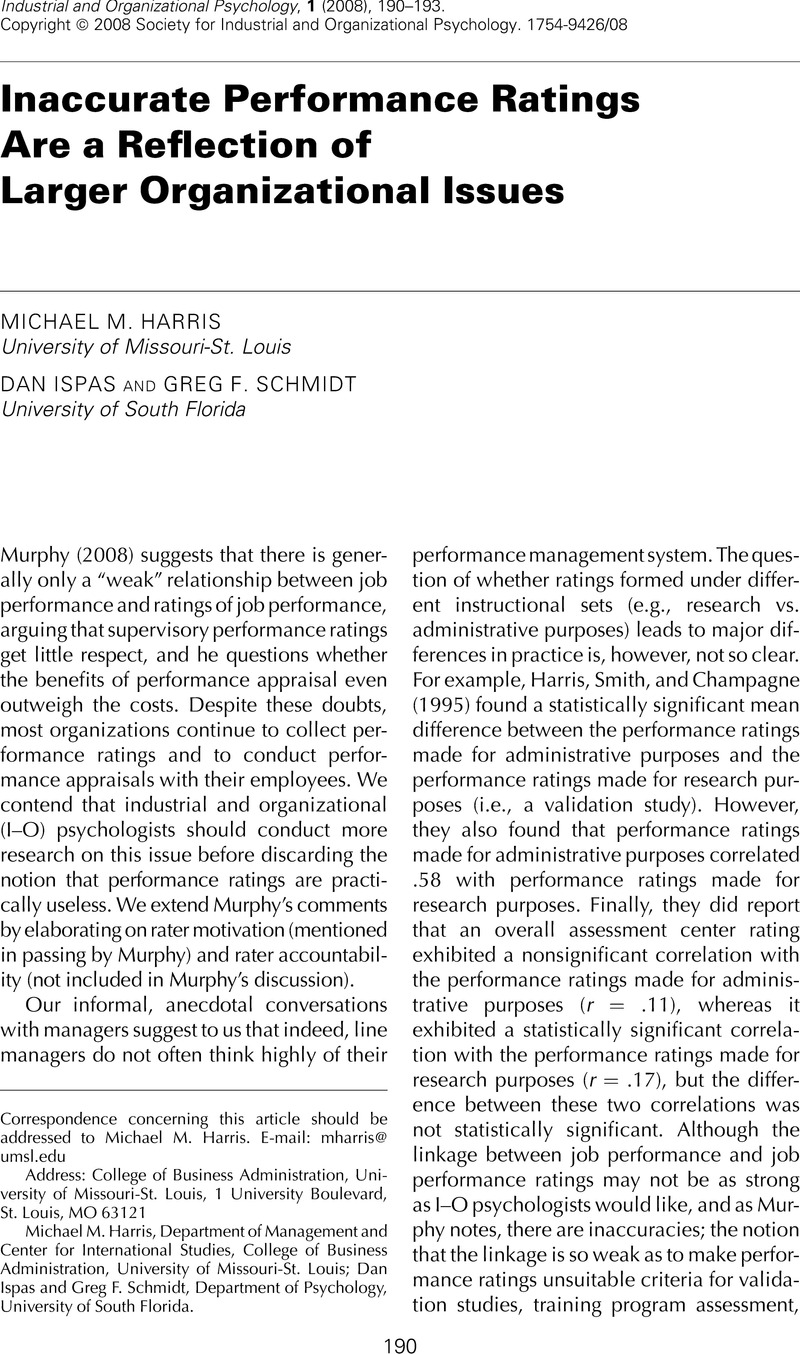Crossref Citations
This article has been cited by the following publications. This list is generated based on data provided by Crossref.
Murphy, Kevin R.
2008.
Perspectives on the Relationship Between Job Performance and Ratings of Job Performance.
Industrial and Organizational Psychology,
Vol. 1,
Issue. 2,
p.
197.
Lewis, Robert E.
2011.
Accountability Is Key to Effective Performance Appraisal Systems.
Industrial and Organizational Psychology,
Vol. 4,
Issue. 2,
p.
173.
O'Brien, James
and
Rothstein, Mitchell G.
2011.
Leniency: Hidden Threat to Large-Scale, Interview-Based Selection Systems.
Military Psychology,
Vol. 23,
Issue. 6,
p.
601.
Jelley, R. Blake
Goffin, Richard D.
Powell, Deborah M.
and
Heneman, Robert L.
2012.
Incentives and Alternative Rating Approaches.
Journal of Personnel Psychology,
Vol. 11,
Issue. 4,
p.
159.
Schmidt, Joseph A.
2018.
Do Trends Matter? The Effects of Dynamic Performance Trends and Personality Traits on Performance Appraisals.
Academy of Management Discoveries,
Vol. 4,
Issue. 4,
p.
449.



